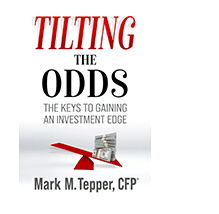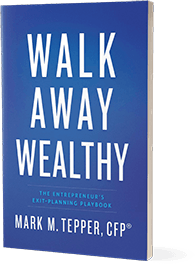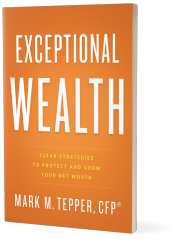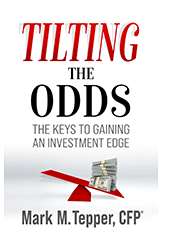Investing in IPOs is a hot topic because the companies in this category are typically in a very impressive growth curve. There’s lots of optimism and hope surrounding them. But there’s also a lot of hype. How are they performing? Are they over-valued in the market? You need to look at their management teams, their growth, and their valuation. In this episode, we take a deep-dive into IPOs and whether or not most are worth an investment.
Outline of This Episode
- [0:15] The hype surrounding IPOs is just that—hype.
- [1:09] IPOs are boom or bust—speculative at best
- [3:48] Valuation is the area where IPOs have issues
- [5:45] The impact of the recession on the S&P 500
- [9:19] Dealing with changing interest rates
- [11:22] The decrease in publicly traded and increase in private capital assets
- [12:48] Understanding IPO prices versus first trade price
- [18:32] Peloton takes advantage of the high valuation of software companies
- [21:50] Two takeaways to consider IF investing in an IPO
Is a speculative investment something you should be pursuing?
As we talked about in episode #5, we choose stocks for clients based on the management team, the growth story of the company, and whether or not they have a proper valuation. Many IPOs have a great management team & the growth story is typically amazing—which is what excites investors. You’re left intrigued. But the valuation is what crushes you. The IPOs are always overvalued and you can NEVER get in at the IPO price.
There is also a significant difference in the value of privately traded companies vs publicly traded. IPOs are valued in the private market at a 17 multiple and when they hit the public market, they eventually go back to that 11.8 (of the S&P 500). They—and you—have to be okay with the fact that the multiple will drop.
You must be cognizant of the fact that IPOs are high-risk and overvalued across the board. If you choose to invest in them, they need to fit into the speculative sleeve of your portfolio—which should get all of 1%, if that. We choose not to speculate with our portfolios. Listen to hear our in-depth discussion on this investment decision.
Since the great recession, investors are embracing alternative assets
Before the great recession, the 40% investment in bonds used to prop up the rest of the portfolio. They’d garner you a nice 6-7% interest. Now, you’re getting about 2% from the same asset class. Investors are embracing alternative options (such as IPOs and real estate), partially in response to the poor interest rates in the classic portfolio.
Before the recession—from the ‘90s to 2007/2009 or so—The S & P 500 traded at a premium of 50%+ compared to private equity. After the recession, they started to trade more in line until 2014 when private equity multiples broke out. Since 2000, alternatives have jumped from 20% of allocation to 50% allocation—which flows more money into the private equity deals and inflates their multiples.
The number of companies listed under US exchanges vs. private capital assets under management has also drastically changed. Right before the year 2000, their were 8800 publicly traded companies—now there are around 5,500. Private companies have gone from 500 to 5826, which is crazy growth. So a lot more capital has flown into these private alternatives and more opportunities exist. The question is:do you want to hop into them?
“Unbelievable” IPOs from 2019: understanding IPO prices vs. first trade price
We’ve already established that we believe IPOs are overpriced and overvalued. Take, for example, Beyond Meat. They produce a burger that is supposedly similar in taste and texture to real beef—but it’s not beef. Another similar offering is the ‘Impossible Burger’. Both generate some intrigue in the market and perhaps you’d give them a try once or twice. But most people—unless inherently against the slaughter of animals—will return to real meat every time.
Our feelings on fake meat aside, they are one of the few successes of 2019. Their IPO price was $25, but their first trade was at $46. The price continued to climb all the way to $240 before it crashed back down. It is up 64% from the first trade but down 69% from the high and now trading around $125. Investors look at this and calculate that it’s up 202% (return from the first trade plus 64%). In reality, they should be looking at the return potential from the first trade. Where was it trading two hours after the first trade? We’d take a 64% return any day of the week, but you must be careful not to overvalue the investment.
Keep listening as we discuss the failing performance of many other popular IPOs from 2019, further proving our hesitancy to embrace them.
Investing in IPOs: most IPOs over-value and under-deliver
Peloton is an IPO that has pitched itself as a software company, but is reliant on its hardware offerings, just like Apple. Apple NEEDS to sell an iPhone before it can upsell its watches, Airpods, Apple Music, etc. Peloton, likewise, has to sell you the bike before it can sell you the monthly subscription. They are simply trying to sell themselves as software because the valuation is higher.
Peloton is a great product that we enjoy—it is addictive and allows us to be competitive. But just because you love the product doesn’t mean you have to love the stock. Don’t get suckered into one of these “flavor of the week” IPOs when the valuation of the stock is far too high compared to their performance.
Which brings me to the point(s) we are trying to communicate:
- You aren’t going to get in at the IPO price so you’re already at a disadvantage.
- These companies are already overvalued in the private market and once they go public you HAVE to be okay with a reduced valuation.
Question WHY you’re considering an IPO, if it will fit into your portfolio, and if the valuation is accurate. Listen to the whole episode for our detailed thoughts on the topic!
Resources & People Mentioned
Connect with Derek Gabrielsen
- Twitter: @DerekGabrielsen
- Follow Derek on LinkedIn
- Send Derek a message here
Connect With Mark Tepper
- Twitter: @MarkTepperSWP
- Follow Mark on LinkedIn
- Send Mark a message here
Send your questions and comments to us at info@SWPConnect.com
Subscribe to The Capitalist Investor
Show Notes by
PODCAST FAST TRACK
https://www.podcastfasttrack.com
 Enter your information below, and we will email you our new eBook, Tilting the Odds
Enter your information below, and we will email you our new eBook, Tilting the Odds




